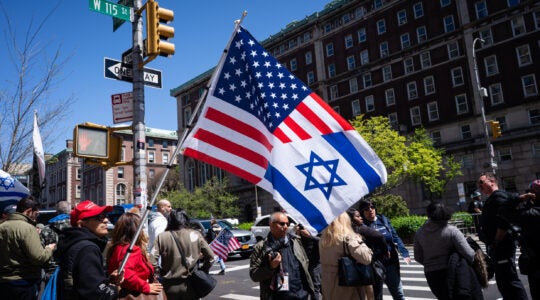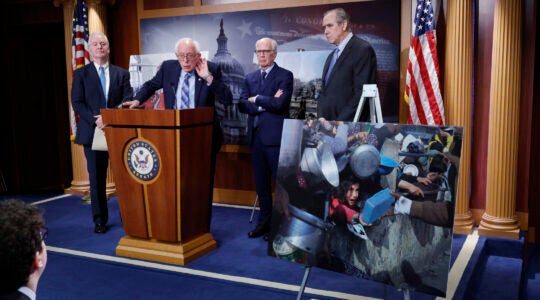WASHINGTON (JTA) — The Conference of Presidents of Major American Jewish Organizations will vote on changes making it easier for new members to join.
In a meeting on Tuesday, the Jewish community’s foreign policy umbrella will consider dropping the threshold for entry from two-thirds of the vote to 55 percent and reducing the quorum requirement from 75 percent to two-thirds. The Presidents Conference has more than 50 member organizations.
Voting could take place via teleconference or video conference, a reflection of the fact that member groups and their officials no longer tend to be New York-based.
The Jewish Federations of North America would designate three major Jewish federations as voting members, according to the new rules. The change redresses complaints that organizations with relatively small memberships have votes equal to large groups.
Effectively giving JFNA four votes would place it on a par with the Reform, Orthodox and Conservative religious streams, each of which is represented by four groups, Presidents Conference Executive Vice Chairman Malcolm Hoenlein told JTA.
“It’s structured in such a way that it doesn’t diminish the role of the individual members and their role in the conference,” he said.
The new procedures would also set up a 13-member executive committee, to be chaired by the Presidents Conference chairman, currently Robert Sugarman.
The committee, which would strive for a diverse membership and meet monthly, would “increase the sense of participation among Conference members, provide a regular framework for reaching decisions and enhance the process of consensus making as well as the operation of the Conference,” said the document distributed last week to Presidents Conference constituents by the umbrella’s Process and Procedures Committee.
There have been ongoing efforts to diversify the Presidents Conference since 1999, and this is the sixth round of “tweaks,” Hoenlein said.
The failure of J Street, the liberal Jewish Middle East policy group, to gain entry in April last year led to renewed calls for change, including warnings from the Reform movement that it would withdraw without reforms to the process.
J Street’s bid lost with 17 member organizations voting in favor, 22 voting against and three abstaining.
JTA has documented Jewish history in real-time for over a century. Keep our journalism strong by joining us in supporting independent, award-winning reporting.





